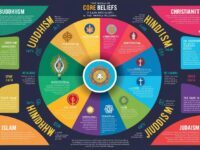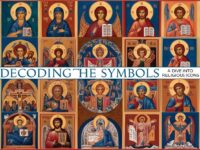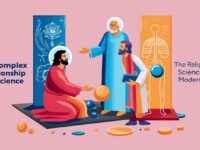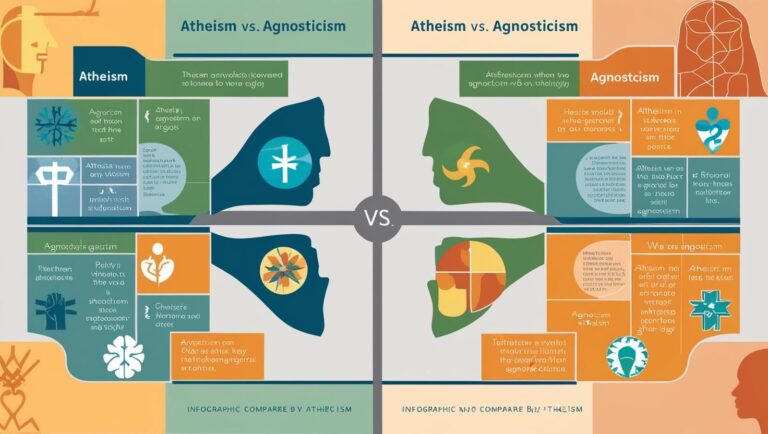In a world where religious beliefs shape cultures, traditions, and individual identities, understanding the nuances between different perspectives is crucial. Two commonly misunderstood terms in the discourse on belief and skepticism are atheism and agnosticism. Though they often appear in similar conversations, they represent distinct positions. This article delves into the differences between atheism and agnosticism, exploring their unique characteristics and what they reveal about human belief and doubt.
Atheism vs Agnosticism: Clearing Up Confusion
Atheism and agnosticism are often lumped together, yet they reflect different approaches to the question of God’s existence. At its core, atheism is the absence of belief in any gods. Atheists assert that there is no convincing evidence of a deity’s existence and hence, choose not to believe. This position doesn’t necessarily involve the claim that gods do not exist; rather, it’s a stance taken due to a lack of evidence supporting theistic claims.
Agnosticism, on the other hand, deals with knowledge rather than belief. Coined by the 19th-century biologist Thomas Huxley, the term describes a position of uncertainty about the existence of gods or the divine. Agnostics maintain that human knowledge is insufficient to determine the existence or non-existence of a deity. In this view, claims about god’s existence remain unknown and perhaps unknowable, putting the emphasis on the limits of human understanding.
The confusion between atheism and agnosticism often arises because these terms can intersect. An agnostic atheist, for instance, doesn’t believe in gods (atheist) due to a lack of evidence but also holds that the existence of gods is ultimately unknowable (agnostic). Conversely, an agnostic theist might believe in a god but acknowledge that this belief is not based on empirical evidence. Understanding these nuances helps clarify the rich tapestry of human belief systems.
Belief and Doubt: What’s Really at Stake?
Belief and doubt fuel much of the human experience, and the divide between atheism and agnosticism highlights the complexity of our search for meaning. For many, belief in a higher power provides comfort, moral guidance, and a sense of purpose. Atheists, however, often find meaning through different avenues, such as human relationships, science, and the arts, emphasizing values like reason and evidence-based understanding.
The stakes in the atheism-versus-agnosticism discourse extend beyond personal belief systems. They intersect with broader societal issues, such as secularism, freedom of belief, and the role of religion in public life. Atheists might advocate for a secular state where religious beliefs don’t dictate laws, while agnostics may argue for a more inclusive dialogue recognizing the limits of human knowledge in spiritual matters.
Ultimately, the conversation between atheism and agnosticism enriches our understanding of belief and doubt. It encourages deeper reflection on why we hold certain convictions and how we approach the unknown. Both positions challenge the status quo, pushing individuals to consider the evidence, question assumptions, and engage in open-minded exploration. This dialogue fosters a more nuanced appreciation of the diverse ways people find meaning and navigate the mysteries of existence.
The debate between atheism and agnosticism is more than a matter of semantics. It touches on fundamental questions about knowledge, belief, and the human condition. By distinguishing between these two positions, we can appreciate the variety of ways in which people grapple with the biggest questions of life. Whether you’re a firm believer, a skeptic, or somewhere in between, these discussions can offer valuable insights into the nature of belief, the limits of knowledge, and the ways in which we search for meaning in a complex world.

















